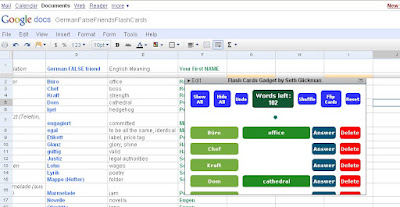And although I've been meaning to do this post for ages, I reckon this might be one of those occasions where an explanation won't be anywhere near as effective simply showing you why:
Video 1:
Backstory my student Y, would like to comment on G's summary blog post about mobile phone market share (based on an article and infographic from Mashable).
He's nervous that his comment won't be written correctly so has drafted his response before clicking on add-a-comment. We then imported this into our shared google doc in order to work on his text together. As you can see in this video, we are working on separate computers - me showing him where he needs to make the changes and discussing the errors or mistakes while he corrects the problems himself.
His weaknesses remain his private domain at the end of the day as only the two of us have access to his page, however, at any time he can go through previous entries evaluating his written work and find patterns in his errors. But while his English develops, he can still add his thoughts and opinions to G's post and although they are at different levels of English they can effectively hold a conversation about a shared interest.
His weaknesses remain his private domain at the end of the day as only the two of us have access to his page, however, at any time he can go through previous entries evaluating his written work and find patterns in his errors. But while his English develops, he can still add his thoughts and opinions to G's post and although they are at different levels of English they can effectively hold a conversation about a shared interest.
Video 2:
Backstory My student B, lives in another city and our classes are held over the telephone. In this video I am showing how, over a series of lessons B can get a feel for the type of errors she makes most often via the colours. As Google Docs don't work on pages, but instead a long running stream, she can go back and forth through her document reviewing whether or not she still remembers new vocabulary and phrases. You can can also see how I link to other sites for reference and how I use the blog I write for them to review and scaffold language which emerges in our lessons.
Hope these were clear! Don't hesitate to ask questions if not.
Please note that like everything I write on this blog, my work is creative-commons licensed so I am very excited when my readers try things out in class and then take ownership of a practice or material, adapting it for their own purposes and so if you do adopt this practice too, I'm deeply honored... however, I would like to stress to you that working in this particular fashion, in terms of creating an e-space in order to focus on form, is my original concept and therefore if you write an article, a research paper, blog post or print article or give a presentation on google-docs and error correction that you do not forget to atttribute my work by referencing this post. Imitation is flattery, plagiarism and copyright violation isn't. Thanks so much!
Best,
Karenne
Useful links:
Learn more about Google Docs: http://www.google.com/google-d-s/tour1.html
More of my posts using Google Tools and Apps
S is for Scaffolding
Reformulation by Scott Thornbury
Giving language learners a voice in correction by Peter Watkins
Sometimes a prop is really the best thing by Mike Harrison
interesting... John Truscott, disagreeing with L2 grammar correction in writing












